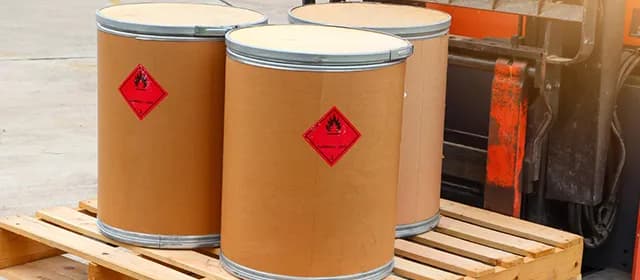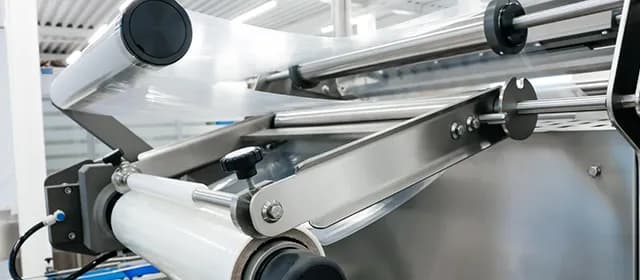Have you ever wondered what makes airplanes so strong yet compatible in outer space? Well, it's all the magic of a fascinating material called aerospace titanium. This incredible stuff has become a game-changer in the aviation industry. You see, titanium is not only incredibly strong but also resistant to corrosion and heat. By using aerospace titanium, planes can be more fuel-efficient, safer, and able to withstand the demands of flight. Pretty cool, right?
So, let's not wait and fly through this mesmerizing world by grasping knowledge of aerospace titanium's significance, applications, and contribution to the aviation sector.
What Exactly is Aerospace Titanium?
Aerospace titanium refers to the use of titanium and titanium alloys in the aerospace industry. Titanium is widely used in aviation due to its exceptional properties, including a high strength-to-weight ratio, corrosion resistance, and heat resistance. It is utilized in various aerospace applications, such as airframes, aircraft engines, fastening elements, landing gear, and aerostructures.
Titanium alloys, such as Ti-6Al-4V (grade 5 titanium), are particularly popular in aerospace manufacturing. The use of titanium in the aerospace industry helps improve aircraft performance, minimize weight, increase fuel efficiency, and enhance overall durability and safety.
The most recent study published by Kings Research states that the global aerospace titanium market is likely to exhibit a compound annual growth rate (CAGR) of 6.93% to reach a value of USD 7,007.5 million by 2030.
Types of Aerospace Titanium Employed in the Aviation Industry
- Ti-6Al-4V
Ti-6Al-4V, or Grade 5 titanium alloy, is the most commonly used form of aerospace titanium, accounting for 50% of worldwide usage. Its chemical composition consists of aluminum and vanadium, with iron and oxygen accounting for less than 0.30% each.
It has significant mechanical properties, such as tensile strength, yield strength, and ductility, which are subject to rigorous scrutiny. Grade 5 titanium castings can achieve impressive values, such as 135 ksi tensile strength, 120 ksi yield strength, and 9% elongation, but there is room for improvement, specifically in elongation.
- FS2S
FS Precision has developed a superior option for aerospace titanium alloy– FS2S titanium alloy. This alloy adheres to industry specifications and outperforms standard Grade 5 mechanical properties by approximately 10%. Its near-net-cast FS2S improves tensile and yield strengths by 10% and bolsters fatigue strength and moldability with an elongation value of 12%.
What Makes Titanium a Key Choice Material in Aerospace Applications?
There are loads of reasons why aerospace titanium is such a fantastic pick for the aviation industry. Take a look.
- Light-Weighted
Titanium is a lightweight metal in contrast to aluminum and steel, which provides strength and durability for aircraft structures, enhancing fuel efficiency. It is compatible with composites, making it the preferred choice for aircraft structures due to its superior weight-to-strength ratio.
- High Thermal Expansion
Titanium possesses a distinctive characteristic known as high-temperature performance, which sets it apart from other materials. This exceptional property enables titanium to perform exceptionally well at varying temperatures, making it a reliable and versatile material.
- Elevated Corrosion Resistance
Corrosion resistance is an essential characteristic in the aerospace sector, and titanium is innately resistant to corrosive factors. This ability of titanium eliminates the need for corrosion-resistant paints, making it a cost-saving and most suitable choice for aircraft manufacturing.
Recent research by NASA shows that 60NiTi (nickel-titanium alloy) is the most promising aerospace titanium material for space mechanisms.
How Does Titanium Contribute to National Defense?
Are you surprised to learn that titanium is used to safeguard nations? Well, the aerospace industry and titanium are economically linked, with the demand for newer, better planes increasing.
Countries with large military budgets, like the United States, have a high demand for titanium, considering its availability a matter of national security. Commercial airplanes like the AirBusA380 and BoeingB787 utilize a higher quantity of titanium compared to earlier aircraft designs.
Similarly, military aircraft like the F-22, F/A-18, C-17, F-35, and UH-60 Black Hawk helicopters make extensive use of titanium. Powder metallurgy is another military application of titanium, providing superior corrosion resistance and high strength.
Titanium is replacing aluminum parts in aircraft manufacturing due to its resistance to heat and corrosion. It is also being used in aircraft engine parts, such as discs, blades, shafts, and casings. NASA used titanium in outer space travel vehicles, such as the Mars Curiosity rover. The titanium market outlook is expected to remain steady as demand for more planes and efficient air travel increases.
Titanium Takes Flight
Aerospace titanium is an unsung hero proven to be a game-changer in the aviation industry.
Its exceptional strength-to-weight ratio, corrosion resistance, and high-temperature tolerance make it an ideal material for aircraft components Not only does it enhance fuel efficiency and performance, but it also ensures the safety and longevity of aircraft.
With continuous advancements in titanium alloy technology, the future looks even brighter for aerospace titanium, promising even more innovative applications in the aviation field.




